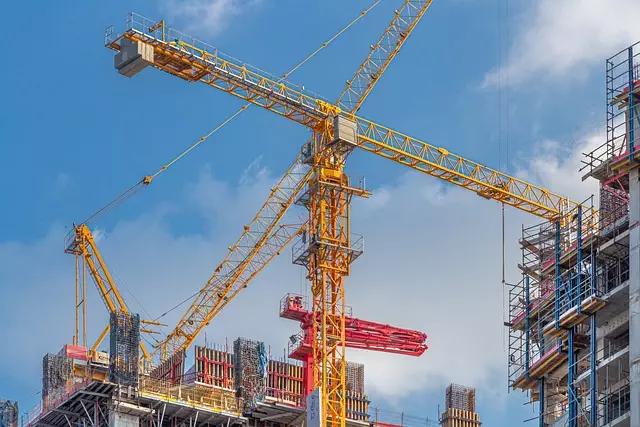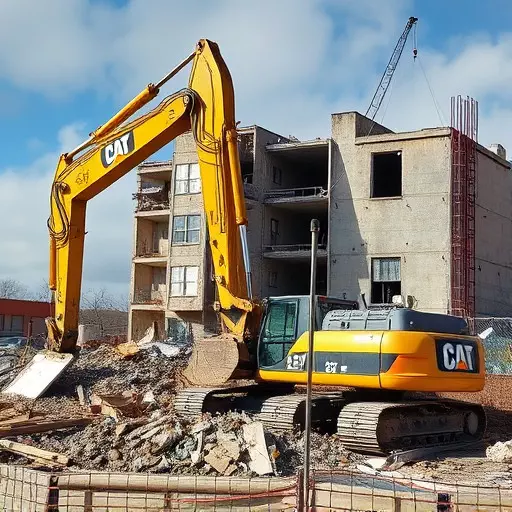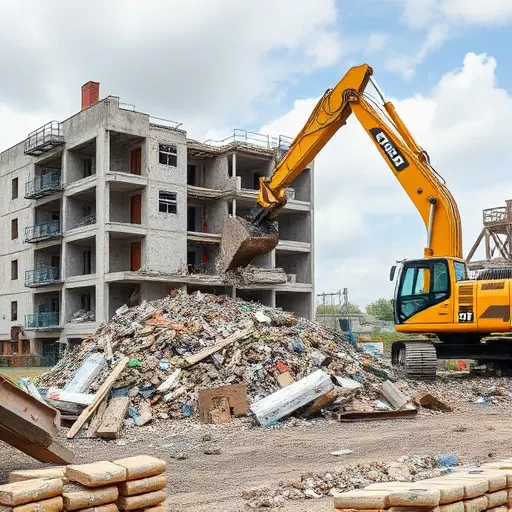Demolition and recycling services in Toledo are crucial for sustainable construction, addressing environmental concerns related to traditional methods. By adopting building deconstruction techniques, local companies can divert non-biodegradable materials from landfills, reducing waste and conserving resources. This eco-friendly approach offers economic benefits by recovering reusable components, promoting a greener future while aligning with global efforts to embrace circular economy practices in construction.
Demolition is a critical yet environmentally impactful phase in construction projects. With increasing concerns about waste management and sustainability, there’s a growing focus on recycling demolition materials. This article explores the benefits of embracing eco-friendly practices through understanding the impact of demolition, highlighting the role of both construction site demolition and building deconstruction. Discover how these processes contribute to a greener future for Toledo and beyond, offering viable solutions to reduce environmental footprint.
- Understanding Demolition and Its Impact on the Environment
- The Benefits of Recycling Demolition Materials
- How Construction Site Demolition and Building Deconstruction Contribute to Sustainable Practices
Understanding Demolition and Its Impact on the Environment
Demolition is a critical yet often overlooked aspect of construction projects, especially in the context of building deconstruction and renovation. When a structure comes down, it generates a significant amount of waste that can have a substantial environmental impact if not managed properly. Construction sites generate various materials, including concrete, steel, wood, insulation, and asbestos, many of which are non-biodegradable and can harm local ecosystems if not recycled or disposed of correctly.
In Toledo, where construction and demolition activities are common, understanding the importance of responsible waste management is key. Demolition and recycling services play a vital role in mitigating environmental damage by diverting materials from landfills. Building deconstruction methods, which involve careful disassembly and sorting of materials, ensure that resources can be reused or recycled, promoting sustainability. This not only reduces the carbon footprint associated with new construction but also conserves natural resources, making it an increasingly popular choice for eco-conscious developers and architects.
The Benefits of Recycling Demolition Materials
Recycling demolition materials offers a wide array of benefits for both the environment and the construction industry as a whole. One of the primary advantages is the significant reduction in landfill waste, which is a pressing environmental concern. By repurposing materials from construction sites, including wood, metal, concrete, and insulation, we can decrease the strain on landfills and preserve valuable space for other uses.
Moreover, demolition and recycling services Toledo-based companies provide play a crucial role in resource conservation. Building deconstruction methods allow for the recovery of reusable materials, which can be sold or incorporated into new construction projects. This practice not only saves money for builders but also reduces the demand for virgin resources, fostering sustainability in the industry. It’s a win-win solution that contributes to a greener future.
How Construction Site Demolition and Building Deconstruction Contribute to Sustainable Practices
Construction site demolition and building deconstruction are essential practices that contribute significantly to sustainable development. Demolition and recycling services in Toledo play a pivotal role in minimizing waste and maximizing resource recovery from existing structures. Traditional construction methods often generate vast amounts of debris, including concrete, steel, wood, and various other materials. However, through strategic deconstruction and responsible recycling, these materials can be transformed into valuable resources for new projects.
Building deconstruction involves the meticulous process of taking apart structures while identifying and separating reusable components. This method allows for the recovery of high-quality building materials, which can then be recycled or repurposed. By adopting such sustainable practices, construction companies in Toledo not only reduce their environmental footprint but also contribute to a circular economy where resources are conserved and reused. This approach aligns with global efforts to minimize waste and promote eco-friendly construction methods.


